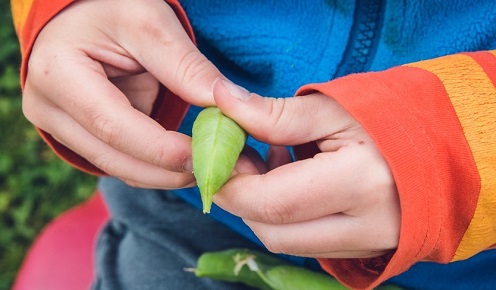TASTE AND CONSUMPTION

The importance and value that consumers attach to food products are increasingly influenced by developments in our food consumption, and consumer preferences are thus also a crucial part of the development of urban farming. Urban farming addresses the modern consumer in a number of ways.
Specific parameters make consumers appreciate food produced in urban and peri-urban areas. Research indicates that consumer interest is based on more or less conscious considerations regarding local production, proximity, visibility and, not least, sustainability.
Consumer engagement promotes the marketing of food products
The fact that food products are produced locally can contribute positively to the consumer's experience of the food, and it may outweigh other standard parameters such as uniformity and accessibility. Understanding how consumer engagement can be increased may be used to promote the marketing of food products from urban farming, for example by focusing on taste and consumer opportunities to contribute to local food production, undoubtedly leads to increased satisfaction and more willingness to buy the food.
Research also indicates that consumer proximity to food production can mean healthier food choices, healthier people, and greater satisfaction in choosing healthy foods. Thus, urban farming can contribute to a healthier diet and population. Therefore, it is obvious to consider how new food technologies can support these smaller production systems with fewer economic resources to ensure extended product durability and a general understanding of food safety.
New technologies extend the durability of food products from urban production systems
Technologies such as fermentation and vacuum drying are useful in this context, as both methods can facilitate flavour development in products from urban production systems, and can contribute to a reduction in food waste, as they enable the utilization of excess fruit and vegetables from farms.
We work to connect science and gastronomy for mutual benefit. We strive to expand what we consider to be tasty and useful ideas and methods for small-scale food production for the benefit of those who prepare the food and those who enjoy eating it.
Would you like to get in touch with one of our urban farming experts?
- Experiment with consumer experiences regarding products and food from urban farming
- Urban farming as a tool for developing healthier eating habits
- Analysis of derivative activities associated with Urban Farming, such as movement/exercise and the development of new communities
- Importance of geographical origin and consumer preferences relative to urban farming
- How much does urban farming contribute to our diet?
- Does urban farming affect consumers' food choices - do they eat “greener”?
- What is the significance of urban farming for nutrient intake?
- Elucidate consumer preferences for various food products produced through urban and peri-urban farming
- Apply knowledge concerning consumer preferences for the development of urban farming
- Explain how value chains can support consumer preferences
- Contribute to regional development of urban farming
- Work specifically to develop recipes and food products that match consumer preferences, competencies, and production environments
- Calculate the effects on food waste connected to cultivation and food preparation
- Contribute with data and knowledge about how the ability to contribute to cultivation and the production of their own food can affect children's willingness to try new food products
- Prepare tasty food with insects and determine how we may lower barriers to trying food derived from insects.
- Develop food vacuum and fermentation technologies for both private consumers and the industry
